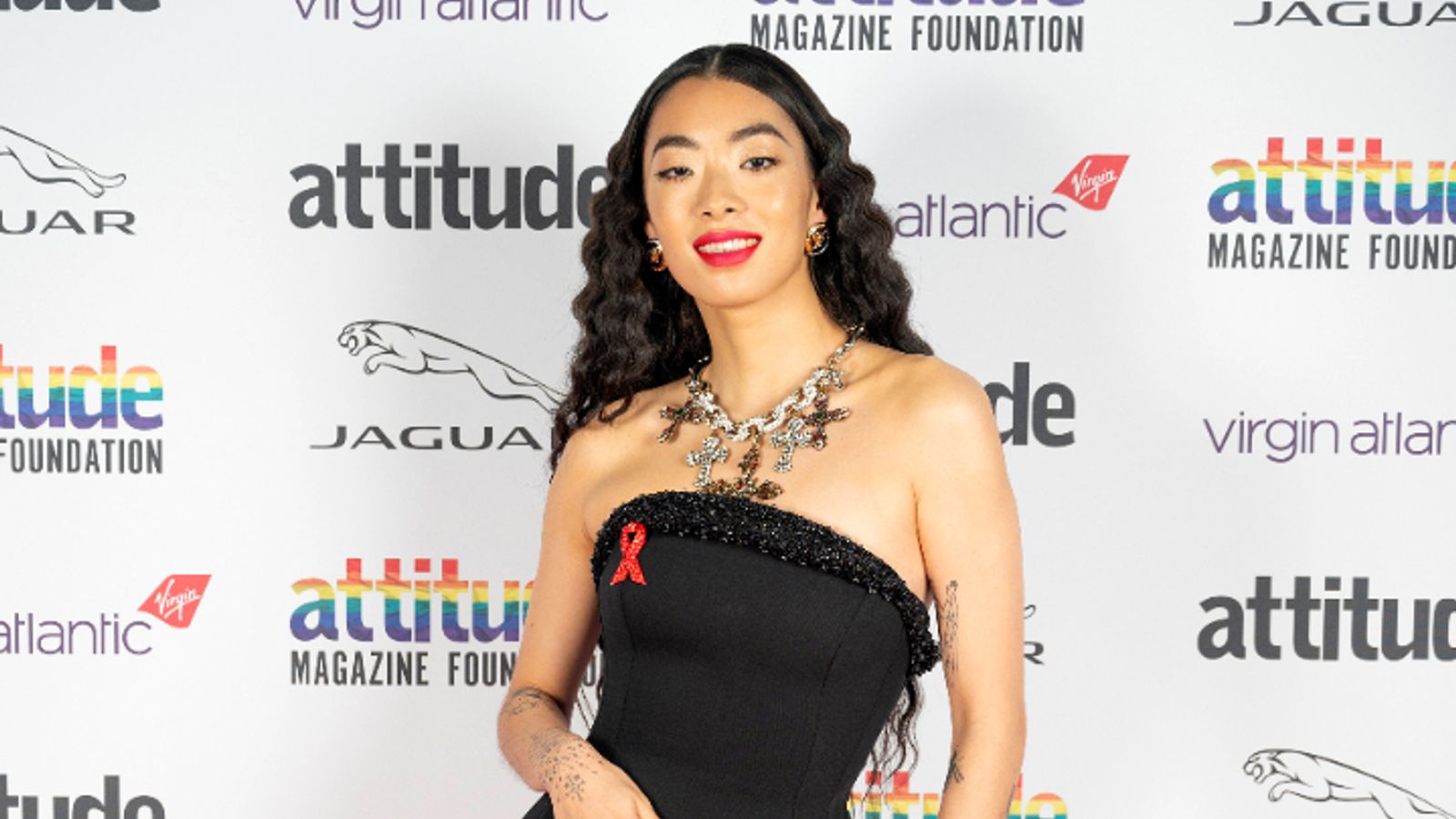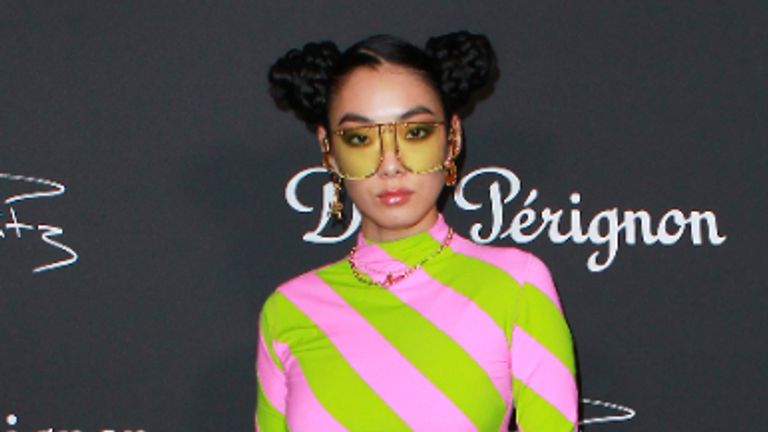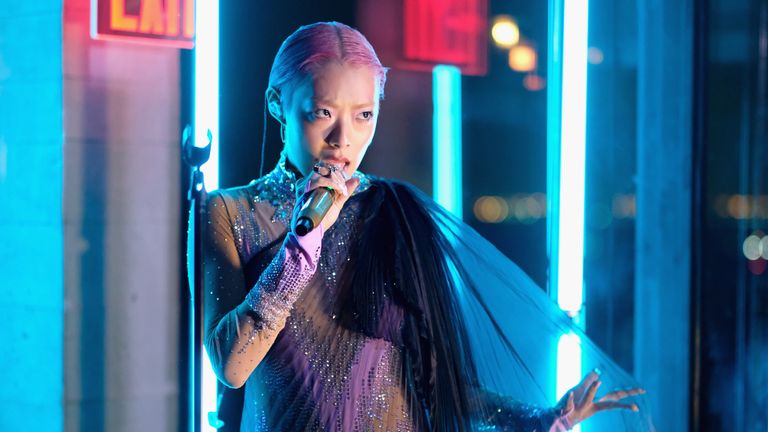Rina Sawayama is at home in her flat in London, ready to talk characteristically candidly about everything from LGBT+ rights to video calling Elton John – but first, her less than satisfactory experiences with the long-awaited PlayStation 5.
It may sound trivial, but this was a big-deal purchase, she says, a present to herself after a hugely successful year that has seen her fame sky-rocket.
Frustratingly, there were a few teething problems. “Basically, it didn’t work at all.”
After trying unsuccessfully to use her “blue-tick power” to get help through social media, the musician took to discussion website Reddit to figure it out.
“[Now] it does sort of work in a certain mode, but I’m still not able to use the full functionality. But that’s where I am… that’s my lockdown woes, basically.”
PS5 troubles and lockdown aside, Sawayama has had a stellar year. Her debut self-titled album was met with critical acclaim upon release in April and a legion of fans have flocked to her music during the pandemic. The record sounds like Britney Spears, Limp Bizkit and The Neptunes blended together in the best way possible
And to top it off, she’s just won Attitude’s Breakthrough Award.
“I believe it’s my first UK award, so it feels very special,” she says. “Also [it’s from] Attitude, which is obviously a really important publication for our community.”
Sawayama is one of only a handful of LGBT+ Asian-British celebrities who have spoken publicly about their sexuality or gender identity – she has previously described herself as bisexual and pansexual.
“Every win is a small win. There’s always people who want to weaponise that and use that to build a fence, rather than build a bridge,” she says.
“There’s a lot of negativity in the world, negative rhetoric around our community, even within our community. That needs to definitely be addressed.”
Her rating of LGBT+ rights in the UK is also pretty pessimistic.
“It kind of feels like it’s backtracking, especially with trans rights and LGBT education,” she says, highlighting a number of celebrities who have spoken in a distasteful manner about transgender people in the last year.
“I think trans people have known this for so long, but just having so many famous people advocating for being TERFs [trans-exclusionary radical feminists]… I don’t know, it’s just been a really eye-opening moment,” she says. “For me, what I can do is support lots of different causes that I am passionate about.”
It’s this passion that many had hoped Sawayama would be rewarded for in the form of a Mercury Prize nomination earlier this year.
But when the nominees were released, the singer’s name was nowhere to be seen. Fans were left confused and disappointed.
Sawayama later revealed in an interview with VICE that the organisers of the Mercury Prize and the BRITs, the British Phonographic Industry (BPI), require solo artists to have either British or Irish nationality to apply for the competition. Entrants must provide evidence of their citizenship, such as a passport.
While the musician considers herself British, is a UK taxpayer, and has lived here for more than 25 years, she was born in Japan and holds indefinite leave to remain status. Japan prohibits people from holding dual citizenship.
Sawayama’s fans voiced their frustrations at the BPI’s policy on social media. At one point, the hashtag #SAWAYAMAISBRITISH was the number one trend in the UK.
“I had a pretty stressful experience,” she says. “I haven’t heard from the Mercurys at all during this whole time.”
However, she says she has recently had a “great chat” with the chairman of the BPI.
“He was really apologetic. It’s kind of what I thought it was, just an oversight. They have their own processes of getting rules through, and they have assured me that they’re putting it through that process. So, fingers crossed.
“I think the good thing is that people are starting to listen to stuff that’s happening on social media. I just didn’t even expect anything of that magnitude at all. I just did an article with someone who also had the same visa status as me.”
Her album explores that status, with Sawayama examining her complex relationship with her race.
“When it came out, people were able to understand the story and understand what I wanted to say without mentioning J-Pop or Japan in a stereotypical way.
“That’s my whole mission, basically. To be able to represent myself and Japanese people, or just Asian people in general, without having this burden of stereotype.”
:: Subscribe to the Backstage podcast on Apple Podcasts, Google Podcasts, Spotify, Spreaker
Sawayama says she also wanted the record to show her inspirations were the same as any British person her age.
“I remember Limp Bizkit being in the charts. I remember Holly Valance’s Kiss Kiss. I remember Kylie.”
We could talk for hours about Kiss Kiss, and the video – which featured a pretty much naked Valance. “It was literally my sexual awakening,” she laughs.
As well as being heralded by the critics, fellow artists have expressed their love of Sawayama’s work. Sir Elton John called her debut “the strongest album” of 2020.
“Oh God, I mean, what can you say?” she says of their friendship. “It’s the biggest honour. It really motivates me to just keep going.
“The first time I spoke to him, I just picked up and he was just on FaceTime. Elton John. On my phone. It’s like, ‘what!'”
As for the future, Sawayama is about to release the deluxe edition of her debut album.
“It’s a gift to my fans, really. They’ve supported the record so much.
“It’s just been an incredible year. And if I’ve been able to distract people from really hard daily life this year, then that’s all that matters.”


